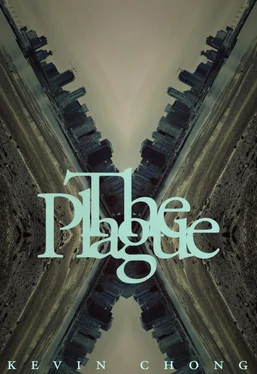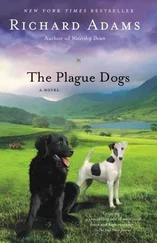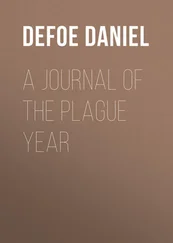The daughter asked them to wait with her until her mother’s body was taken away. She conformed to the expectations one might have about a woman who lived on a houseboat. In her forties, she was sensible in practice, eccentric in outlook. Her face was sun-creased but finely featured. She probably had a source of wealth that allowed her to project comfort. It surprised Tso that this woman would call the Sanitation League for help with cleaning and lunches instead of hiring a maid. Tso offered to make her tea. She felt the need to serve her.
“My mother was a remarkable woman,” the woman told them at her kitchen table. “She had lost my older brother in a swimming accident before I was born. Then my father died when I was still a toddler. She had to raise me alone. I once asked her how she got through it. She said she went to church every week. I think that’s where she must have caught the disease. She wrote letters every day to friends around the world. She always tried to remember the happy moments—suffering was the other side of the coin. And all of it was like a grain of sand on a beach. She used those exact words. In the last hour, she no longer seemed to be in pain. I played her favourite Sinatra records and everything within her quieted.”
From this woman’s table they had a view of the deck and the ocean kayak tied to its railing like a leashed pet. Beyond it was False Creek and the grey, ever-churning water. On the other side of False Creek were the glass condo towers of the downtown peninsula. Two paddleboarders came into view. They caught sight of the woman at the table and waved to her.
“You think you’re alone, and then the paddleboarders appear,” the woman said. “Sometimes they seem to be looking for me. I’m a little disappointed when they float by without a hello.”
The old woman’s body was collected. Rieux and Tso bid farewell to her daughter. Afterward, they walked to the market for lunch. Most of the vendor stalls, the ones that sold chocolates and salmon jerky to tourists, were empty. They got clam chowder and half sandwiches and sat outside with the seagulls.
“Did we accomplish anything?” Tso asked.
“We tried,” Rieux said. “We accomplished an attempt.”
He threw the crust of his bread for the seagulls. She knew him well enough to know that he did not like bread crust. But not well enough to know the name of his wife.
They watched the seagulls gather around the crust and he threw them another piece. “I was supposed to administer a lethal injection for her mother tomorrow,” he admitted to Tso. “They had someone else in place to do it. They had the official approval and documentation for medical assistance in dying. But the doctor they had picked fell ill, and not every doctor will do it. They asked me because they couldn’t find anyone else.”
“I gathered,” she said. “I thought you were opposed to people dying. Don’t you want people to fight?”
“My choice for the woman’s mother would have been for her to go to the hospital. Her choice was to die in her daughter’s bed. It’s her choice—by law.”
“I know the law in this country. It’s relatively new. But what about you? Isn’t your job to prolong life?” she asked him. “Isn’t that the oath you took?”
His grip on the paper cup of tea tightened. “I took on this job for status to avenge my mother’s poverty. I’m no saint. But I developed my own appreciation for medicine as I practiced it. Why am I setting a broken bone? Or why do I prescribe medication for cholesterol? It’s not about healing. I don’t have a view of life in an abstract sense. I don’t care when it begins or how precious it is compared to a gorilla’s. I just want to help people.”
She liked how his eyes caught light in mid-speech. He became engrossed when he spoke like that, searching for arguments from a bookcase in his mind.
“I read somewhere that the ability to take your own life is the kind of escape clause that makes anything bearable,” Tso suggested.
“Only if you don’t have strict religious beliefs.”
“Was that woman religious? Maybe it was an act of God that allowed her to die on her own, without a doctor’s assistance. She got her wish without committing a mortal sin.”
“Are you religious?” he asked.
“I think of myself as agnostic.”
“There’s no such thing. Either you believe or you don’t.”
“My aunt took me to Sunday school, and I cannot get those stories out of my head. Isn’t it possible not to believe in God but still feel his influence?”
“Dostoyevsky would agree with you.” He sighed. “Anyhow, I’m glad I didn’t have to give a lethal injection. I wasn’t looking forward to it.”
The paddleboarders came into view from under the Granville Street Bridge. “I used to think people who were into paddleboarding looked stupid. Are you surfing or are you canoeing? Pick a lane,” Tso said. “Now they seem different. They look brave: ‘We won’t let a pandemic interfere with our indecisive recreational activity.’”
Rieux waved to the paddleboarders. They waved back. “I’ve always wanted to try it out,” he said, looking at her with a raised eyebrow.
They found the aqua-sports rental facility. Lessons were two hours long but not being offered in the winter. Rieux lied and said they’d paddleboarded before. The person behind the counter looked at Tso’s skinny jeans and leather boots, but he didn’t say anything. He slid the two waiver forms toward them.
Rieux paid for the rental of two paddleboards, paddles, and wetsuits. They changed at the rental place and left their clothes there. She watched him carry his paddleboard. This is a bad idea. He didn’t look like he knew how to carry it. They headed toward the marina and walked to the end of a boardwalk where Rieux stopped to look at his phone. He had Googled “how to paddleboard.”
“It’s simple,” he announced afterward, snapping his lifejacket in place. “Let me try it first.” He lay his board down on the water. Then he picked it up and pointed it in the opposite direction. He reached for a springy leash attached to the board and cuffed it around his ankle. Dropping to his knees on the boardwalk, he crawled over to the board.
Rieux’s features and manner were, if not exactly WASP-y, then de-ethnicized. It took this attempt at water sports to remind Tso that he had to cultivate his whiteness, that he took pains to behave as though he hadn’t been raised by a poorly educated Chinese woman.
Still on his knees, he paddled away from the dock. He looked like he was impaling the water, and the loop that he took was awkward. Eventually, though, he stood, wobbly at first, then confident. He looked the way a boy does before he learns to draw the curtains on his face.
“Now it’s your turn,” he told her. “It’s easy.”
She dropped her board into the water but couldn’t get over its bobbing. She had gone surfing before, she’d ziplined. And now she was stuck in an infectious disease zone, and her maniacal ex-fiancé had just come into town. Why am I afraid of this ? she thought. She pulled her board back in.
“I don’t think I want to,” she said. “I’ve done enough that scares me.”
He nodded, but stayed in the water, looping. “What part of it scares you?”
“Standing.”
He brought his board alongside the dock, steadying it with his paddle. “Let me give you a ride. You don’t have to, but …”
She cautiously climbed aboard his paddleboard, facing forward in front of him and kneeling. He paddled away from the sailboats and yachts and toward the Burrard Street bridge, but soon they doubled back and under the shadow of the Granville Street Bridge. Still on her knees, she lowered herself to get as close as she could to being eye-level with the water.
Читать дальше












